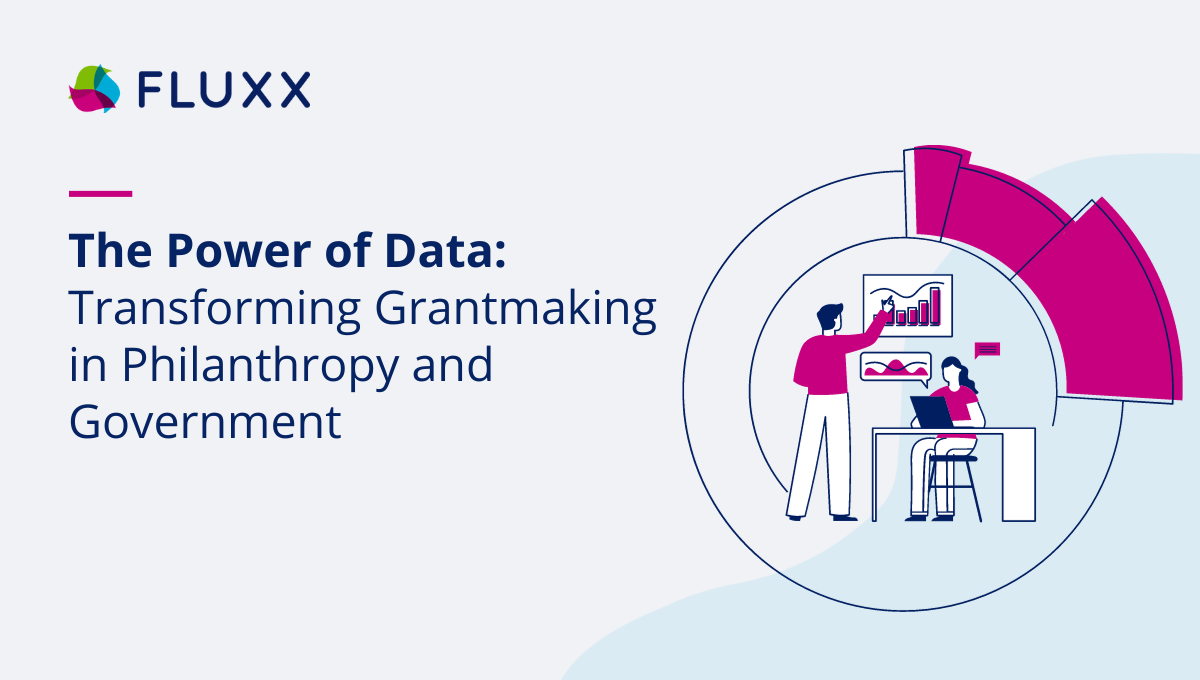
Data-driven grantmaking is a transformative approach that holds immense significance in the philanthropic sector. With the recent launch of Fluxx's Grantelligence™ platform, the future of grantmaking has taken a giant leap forward. Grantmakers now have a powerful business intelligence and analytics solution at their disposal, enabling them to make informed decisions and convey impact effectively. This article explores data-driven grantmaking's profound impact on philanthropy and state and local governments.
The Benefits of Data-Driven Grantmaking
The advantages of data-driven grantmaking are not confined to philanthropic organizations alone; they also extend to state and local governments. By leveraging data-driven insights, grantmakers can achieve improved transparency, accountability, and credibility in their allocation of resources. This increased transparency benefits not only the grantmakers themselves but also the communities they serve since it fosters trust and confidence in the decision-making process.
Fluxx's Grantelligence platform is pivotal in enabling data-driven grantmaking for both philanthropic and government entities. Its holistic and self-serviceable approach ensures all stakeholders can access valuable insights for collaborative decision-making. This streamlines the grant allocation process, expediting the delivery of funds and resources to communities in need.
Empowering Collaboration and Faster Decision-Making
Data-driven grantmaking facilitates collaboration within philanthropic organizations and between grantmakers and state and local governments. Grantmakers can leverage Grantelligence's powerful storytelling tools to effectively convey the impact of their initiatives to government entities. This seamless sharing of data and insights expedites the review and approval processes, enabling faster decision-making and resource allocation to address pressing community needs.
Building trust with stakeholders is vital for the success of any philanthropic initiative, and data-driven grantmaking helps achieve this through evidence-based practices. When grantmakers can access robust data and compelling visualizations through Grantelligence, they are more likely to collaborate with other organizations and support impactful programs that align with their community goals.
Leveraging Data for Impact Assessment
Data-driven grantmaking empowers grantmakers and government entities alike to measure the impact of their initiatives accurately. By utilizing Grantelligence's data-driven evaluations, grantmakers can provide compelling evidence of their programs' effectiveness. This evidence-based approach instills confidence in organization leaders and government officials, encouraging them to allocate resources strategically to initiatives with proven positive outcomes.
The Future of Data-Driven Grantmaking for Governments
The potential of data-driven grantmaking in transforming philanthropy is mirrored in its potential impact on state and local governments. As the utilization of data-driven approaches becomes more widespread, governments can optimize the allocation of resources for community development and social welfare programs.
Grantelligence's innovative data visualization and analytics capabilities provide government officials with valuable insights into the effectiveness of various initiatives. This knowledge empowers them to make informed decisions when distributing funds and resources, ensuring they align with community needs and produce measurable positive outcomes.
In conclusion, data-driven grantmaking is a game-changer for both philanthropy and state and local governments. With the introduction of Fluxx's Grantelligence platform, grantmakers now have a potent tool to make informed decisions, collaborate efficiently, and effectively convey the impact of their programs.
Beyond philanthropy, the impact of data-driven grantmaking on state and local governments is profound. The platform's holistic approach, powerful analytics, and compelling visualizations enable governments to streamline decision-making processes and optimize resource allocation for maximum community impact.
As data-driven grantmaking continues to shape the future of philanthropy and government initiatives, we can anticipate a transformative shift towards evidence-based practices, increased transparency, and enhanced collaboration. Embracing data-driven approaches will ultimately empower grantmakers and government entities to create lasting and meaningful change in the communities they serve.